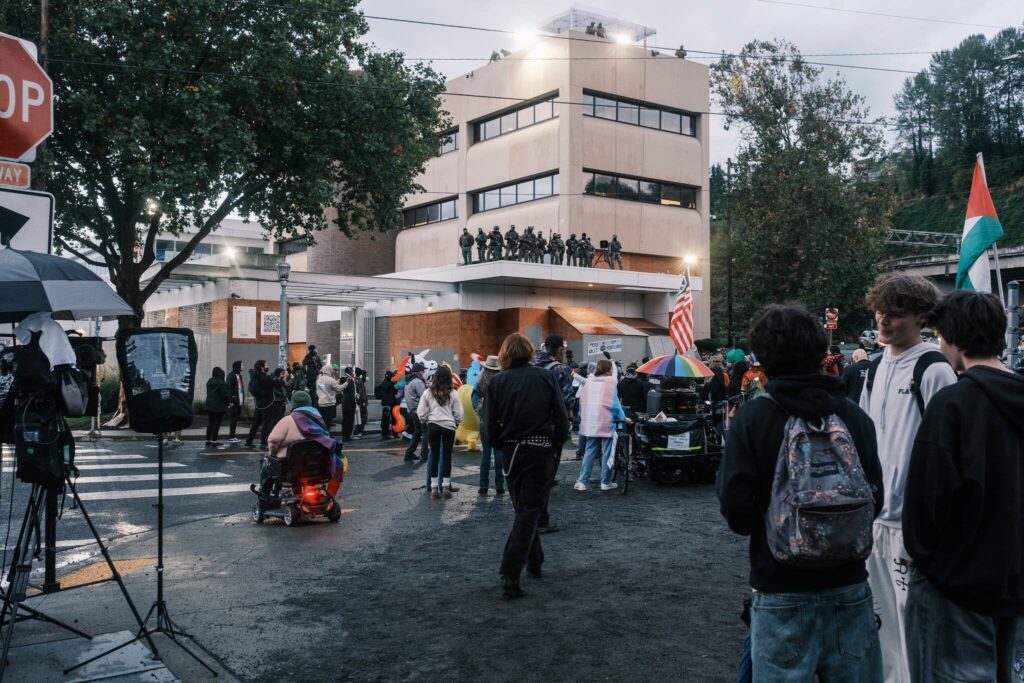The Trump administration can move forward with deploying National Guard troops to Portland, Oregon, after a federal appeals court lifted a block on the order — a decision that could deepen tensions between the White House and state officials over the limits of presidential power.
In a 2–1 ruling Monday, the U.S. Court of Appeals for the Ninth Circuit overturned a temporary injunction issued by Judge Karin J. Immergut of the District of Oregon. The appellate panel concluded that the administration had a “colorable basis” for deploying troops amid ongoing unrest near an Immigration and Customs Enforcement (ICE) facility in South Portland.
Judges Bridget Bade and Ryan Nelson, both appointed by former President Donald Trump, wrote that while “some protests have been peaceful, many have turned violent,” citing incidents in which demonstrators allegedly threw projectiles, attempted to set fires, and targeted officers with laser lights and paintballs.
“Even if the President may exaggerate the extent of the problem on social media, this does not change that other facts provide a colorable basis to support his decision,” the opinion read.
The ruling immediately sparked a new round of legal wrangling. Oregon’s attorney general and the city of Portland filed an emergency request for an en banc rehearing — a rare procedure that would bring the case before 11 judges of the Ninth Circuit. The court gave both sides until Wednesday night to submit arguments.
In her dissent, Judge Susan P. Graber — a Clinton appointee — called the majority opinion “absurd,” arguing that it “erodes core constitutional principles” including state control of National Guard forces and citizens’ First Amendment rights to protest peacefully.
Broader Implications and Ongoing Tensions
The Portland case is one of several nationwide disputes over federal troop deployments during protests. The administration’s use of Guard troops in Washington, D.C., and Memphis, Tennessee, has already triggered lawsuits alleging that soldiers were trained for law enforcement duties in violation of federal law.
In Washington, new filings by the D.C. attorney general claim internal emails show the National Guard is expected to remain deployed through summer 2026 — far longer than initially stated.
Meanwhile, in Illinois, a similar deployment remains blocked after the Seventh Circuit ruled there was no evidence of rebellion or obstruction of federal law. The Trump administration has asked the Supreme Court to overturn that ruling, arguing that the president’s authority to deploy troops “is not subject to judicial review.”
Illinois Attorney General Kwame Raoul countered that such a move would be “a grave misreading of precedent” and warned that unnecessary troop deployments “will escalate tensions and undermine ordinary law enforcement activities.”
Oregon’s Response
Oregon Attorney General Dan Rayfield condemned the Ninth Circuit’s decision, calling it a dangerous precedent.
“This ruling would give the president unilateral power to put Oregon soldiers on our streets with almost no justification,” Rayfield said in a statement. “We are on a dangerous path in America.”
Judge Immergut has scheduled a full trial on the state and city’s lawsuit for October 29, ensuring the legal battle — and the broader debate over federal authority during protests — is far from over.

